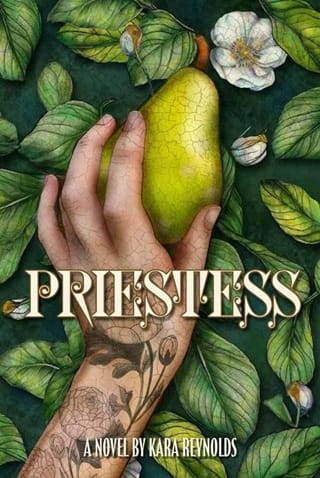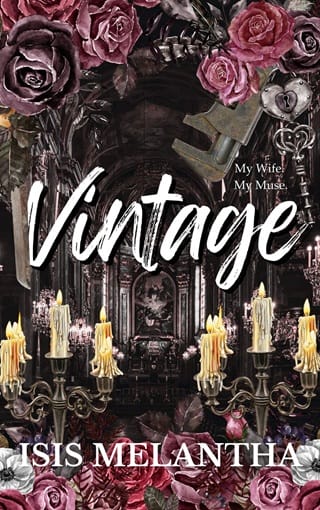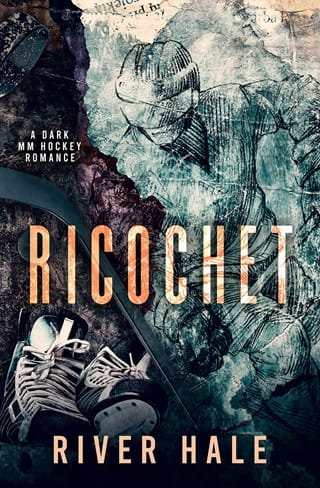4. Wagon
There is no contemplation like the thoughts one has after chaos.
The chaos is relived.
I pondered our position as the hours passed.
One by one, we all sat on the floor.
The two guards outside the office did not move.
Sleepiness stole over us, despite the terror.
It was now well past the midnight hour.
The shouting and clangs of metal on metal had dissipated, giving way to sounds of marching feet and orders.
They were at their exodus, pulling away from the city.
The scent of smoke had filtered into the chapel and I realized they must have burned some of the buildings.
They came back for us as the sun’s rays made their first appearance.
We were herded out of the priest’s quarters to the front steps.
A large, uncovered wooden wagon with close together slats had been wheeled into the street in front of the chapel.
It was pulled by four mismatched horses, two roans, a bay and a piebald.
“That’s for pigs,”
seethed Mischa.
“They don’t have a wagon for prisoners,”
Quinn said.
“They don’t take them.”
Eefa began to cry again.
The hatch on the back was pulled down by one of the men, acting as a ramp pigs could scurry up into the wagon.
From the gathered soldiers, the captain stepped forward and jerked his head towards the ramp.
“Go on.
You asked for captivity.”
Outraged protestations about how this was a wagon for carting pigs to the butcher died on my lips.
The imagery startled me to action.
“We have to go,”
I whispered to them.
I lifted both the hems of my priest’s robe and my dress.
I walked forward and put a foot on the edge of the ramp.
I looked up, to the university spires, seeking out the scriptorium quill, a view I had, just hours prior, looked at in panic, looking for my husband.
Beyond the spires, I saw billowing smoke.
“Quickly, madam,”
sighed the captain.
I looked at him and saw weariness in his face.
He was tired.
He stared back at me.
Remembering my entreaty to my fellow prisoners and in an effort to be gracious, I obeyed and leaned forward, clumsily stumbling up the ramp and into the wagon.
It was not small, but it would be cramped with nine of us.
The slats were too high to climb out and the sky above seemed like a cruel glimpse of escape.
Looking back down, I saw Helena and Mischa approaching the ramp, Maureen close behind.
The streets of Eccleston are cobblestone.
Once the hatch was closed and bolted with a hefty lock, the man with the shaved head climbed onto the small seat at the front and flicked the reins.
All of us were thrown to a dirty floor, straw and dried mud sticking to our clothes.
The ride through the city was bumpy, desolate and a confirmation of the nightmares we had imagined while sequestered in the priest’s office.
Most private homes and businesses had been passed over, but the council buildings were all blackened skeletons of what they had once been.
Every small office for a tax collector or sheriff was now a heap of what looked like used matchsticks.
The Agnes chapels’ white stones had been darkened with ash and soot.
And because fire is not an element that lends itself to the control of man, flames had licked their hungry way into a popular brewery, the city granaries and significant portions of the universities.
The bodies of those who did not make it in time were in the streets.
Every town square we passed through had a line of dead men laid out along the tiles, their throats slit from ear to ear.
“Magistrates,”
said Helena.
“Sheriffs.
Tax officers.
If this is what they did to the smaller offices, what did they do to The Council of Ten?”
The Council of Ten were the elected councilmen to represent the three boroughs and the seven mining districts outside the city.
Most of them were endorsed by one of the wealthiest mining bloodlines.
In Eccleston they were our kings, even if we had shed the old tradition of monarchy.
“I do not want to imagine,”
I said, leaning into her on my right.
Beside her was Maureen and in the corner of the wagon closer to the driver’s seat, on Maureen’s other side was Mischa.
Mischa was asking Maureen if she was alright, when was the last time she had eaten.
She was trying to keep Maureen talking and distracted.
I often liked to think that together, added up, Mischa and I made up for Maureen not having a father.
She certainly had the most loving mother I had ever known, far warmer and more understanding than my own mother, consumed with how our family looked to the rest of Perpatane society.
Behind us, the men were on foot and marching at a steady pace.
I watched them as some of them watched us.
I guessed we were their first prisoners of war.
They did not know what to make of us yet.
And we did not know what to make of them.
We encountered other larger units of Tintarian soldiers, marching in formation, some as large as what must have been one hundred men.
Unlike our captors, they wore chainmail under their armor, were all helmeted and about a third of them on horseback.
“These ones seem different than the rest,”
said Quinn.
I looked up at her, on my left.
She was a hand taller than I was and I was not a short woman.
“I see that.
Less armor.
Do you think they’re not soldiers?”
“I wonder.
The leader said, ‘we are procurers.’”
“He did?”
River asked, leaning in, standing on Quinn’s other side.
“Yes,”
her sister responded.
“Is that significant?”
“I think so.
I’ve only heard about them once when I was talking to a historian from the university.
It was a dinner party.
Remember, dear, the engagement party for our neighbors’ daughter and they know all those First University people—”
“River,”
Quinn said, somewhat tersely.
I noticed this exchange, Quinn having the more practical intelligence of the two, whilst River was the curious intellectual.
“Oh, right.
This man told me about them.
He knew a lot about continental military history.
They’re not exactly soldiers, although they are in the army.
It’s a small troop of soldiers selected by the Shark King and people say they act as his teeth.
If he wants to take a bite out of something, he uses The Procurers.
Tintar is vicious.
And the Shark King is a terror all on his own.
If he wants something, it is they that go and get it.
If he wants to throw his weight around politically, they kidnap his enemies’ loved ones and hold them for ransom.
You know they are constantly at war with the Helmsmen clans over their northern borders because of the treacherous Hintercliff mountain range there.
They can never agree on what belongs to who.
And Helmsmen are known for their trench warfare.
Amongst all those valleys and paths, they are hard to conquer.
A few winters past, The Procurers sneaked into Helmsmen territory, camping there undercover for days so as to locate and poison an entire settlement’s water supply.
Any country who tangles with Tintar will ultimately meet with The Procurers.
They sabotage enemy camps.
They assassinate.
They may have been sent here for a particular reason, not just to help the Tintar army.”
“I do not like this,”
said Quinn.
“It is concerning enough that we are being taken prisoner by an army that is known for not taking prisoners.
Now you tell us, dear sister, that we are being abducted by Tintarian’s elite warriors.”
Helena had joined with Mischa in distracting her daughter with conversation about what time of the morning it must be.
I spoke to the sisters.
“I say we keep this between the three of us.
Emotions are already running high.
The rest of them do not need to know.
Does that seem like a good plan? Or should we all be informed?”
“You are a natural general, Edie,”
said River.
Quinn squinted into the smoky dark.
“And she is correct.
Let’s just see how the rest of this day unfolds.
We need to get our bearings with them.”
“They could be decent captors.
They could be beasts,”
said River.
I thought of Helena’s worry in the priest’s quarters when we both noticed the handsome-faced young guard’s notice of Maureen.
“I’m thinking about that too,”
I said, my words doubly hushed.
“Especially with Catrin and Maureen.
They are both so young and pretty.
And Eefa cannot be older than sixteen.”
“I will repeat what you said in the chapel,”
said Quinn.
“We must stand together.
And be united in our captivity and in our pretense.”
“Well said,”
her sister chimed in.
I peered out and through the wooden slats to the street behind us and saw the leader marching alongside the wagon.
Had he heard us? His gaze flicked up and he met mine.
I should have pulled in the half of my face sticking out but I did not.
I again noticed his refined-looking eyebrows.
In the early morning darkness, the rose glow of fading fires in the distance flickering across his lean face, he looked like a demon in an illustrated version of Rodwin’s scriptures.
The teachings of the saint claimed the unrighteous would spend their afterlives as the servants of a cruel demon folk in a far-off realm.
In drawings they were always rendered as slender and sharp-featured.
He and I looked at each other for what felt like a long time, my heart thudding in my breast.
Then he closed his eyes and slowly opened them, looking past me up the street.
I had lost his interest.
We remained standing as we left the city, riding through the demolished gates.
I took in our space in the wagon, roughly estimating how much room there was for us to sit if we all wanted to and decided it would not be comfortable.
I wondered if I should suggest sitting and standing in shifts.
Even when the cobblestone gave way to dirt roads, it was necessary to hold on to the wooden slats with both hands so as not to be hurled to and fro.
Eefa was sniffling, her mother shushing her.
Catrin had already decided to sit, taking up nearly a quarter of the floorboards.
“Who wants to rest?”
I said, my voice just above a whisper.
They all looked at me.
I went on.
“We have limited room and the gods know how long it will take to get to Tintar if they are on foot.
We should sit in shifts.
I’m not tired yet.”
This was a lie, but I sensed I had the emotional fortitude to keep standing, more so than Eefa or Catrin.
“That is a plan,”
said Helena.
“I agree,”
said Bronwyn.
Maureen, Bronwyn, Eefa and River all sat with Catrin, usurping almost all of the wagon floor.
Mischa, Helena, Quinn and I stayed up, each pushed to the four corners of the cage.
For that is what it was, a cage.
This pushed me closer to the back of the wagon.
Now I was standing facing the marching troop.
I watched them salute or nod to fellow units of Tintarian soldiers.
The other soldiers gave our wagon sideways glances as if they had not expected to find it full of white-robed women.
“Again,”
Quinn whispered to only me, from where she was in the other corner closest to the men.
“I say I do not like this.
See how these other troops look at us.
There’s something going on.
Some factor I cannot seem to grasp.”
“You are making me feel less mad,”
I replied.
“I see it too.”
I looked back into the street and found the captain again.
And again, his eyes found mine, his stare frank and assessing, as if he was branding the shape of my face into his memory, as if he saw through me and my hastily donned white robe, my ink-streaked blue cheek.
This time, it was I who turned away.
 Fullepub
Fullepub 



